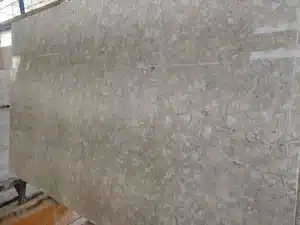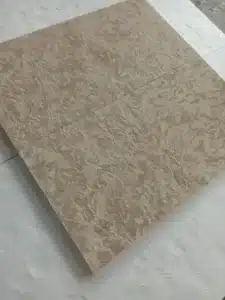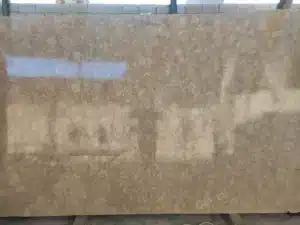As sustainability becomes a priority for homeowners and businesses alike, choosing eco-friendly building materials is more important than ever. Our weather-resistant Ocean Reef Pavers, renowned for their natural beauty and durability, also offer significant environmental benefits. In this article, we explore whether Ocean Reef Pavers are eco-friendly by examining their natural composition, low carbon footprint, and recyclability. We’ll also compare them with manufactured alternatives—such as concrete pavers—to highlight their superior sustainability credentials.
The Natural Composition Advantage
Born from Nature
Our sleek Ocean Reef Pavers are crafted from naturally occurring limestone, a sedimentary rock formed over millions of years. Unlike synthetic pavers, their composition is purely organic:
- Geological Process: Limestone originates from the gradual accumulation and compression of marine sediments. Over millennia, natural forces transform these sediments into robust stone, resulting in a material that is both beautiful and enduring.
- Minimal Processing: Since the stone is naturally formed, it requires minimal chemical treatment or synthetic additives during processing. This means that our seamless Ocean Reef Pavers retain a purity that is often absent in manufactured materials.
- Unique Aesthetics: The inherent variations in color and texture—enhanced by embedded marine fossils—provide each paver with a one-of-a-kind appearance. This natural character not only adds aesthetic appeal but also reinforces the pavers’ environmental credentials, as they are a direct product of the Earth’s natural history.

Eco-Friendly Material at its Core
The natural composition of contemporary Ocean Reef Pavers ensures that they are:
- Free from Harmful Chemicals: Unlike some manufactured alternatives that incorporate toxic additives or binders, these pavers maintain an inert quality, posing no risk of leaching chemicals into the environment.
- Sustainably Sourced: When responsibly quarried, natural limestone is a renewable resource that has been part of the Earth’s cycle for eons. Modern quarrying techniques aim to minimize ecological disruption, making Ocean Reef Pavers a responsible choice for eco-conscious projects.
Low Carbon Footprint: A Greener Alternative
Reduced Energy Consumption
One of the most compelling eco-friendly features of efficient Ocean Reef Pavers is their low carbon footprint:
- Natural Formation vs. Industrial Production: The formation of natural limestone occurs over geological timescales without human intervention, unlike the energy-intensive processes used to manufacture synthetic pavers. For instance, producing concrete requires significant amounts of energy for cement production, which in turn generates substantial CO₂ emissions.
- Quarrying and Processing: Although quarrying does involve energy use, modern practices have improved efficiency, and the processing of natural stone typically consumes less energy compared to the high-temperature kilns needed for cement production. This results in a considerably lower carbon footprint for refined Ocean Reef Pavers.
- Lifecycle Efficiency: The durability and longevity of natural stone mean that these pavers often outlast their synthetic counterparts, reducing the frequency of replacement and, consequently, the overall environmental impact over time.
CO₂ Emissions: A Comparison with Manufactured Pavers

Manufactured pavers, particularly those made of concrete, contribute significantly to global CO₂ emissions:
- Concrete’s Carbon Cost: Cement, the key ingredient in concrete, is responsible for approximately 8% of global CO₂ emissions. The manufacturing process involves the calcination of limestone at extremely high temperatures, releasing large amounts of carbon dioxide.
- Eco-Advantages of Natural Stone: In contrast, crafted Ocean Reef Pavers, with their natural composition, bypass many of these energy-intensive production stages. This results in a material that is inherently more sustainable and less carbon-intensive, making it a greener option for outdoor projects.
Recyclability and Longevity
Built to Last and Reuse
Another significant eco-friendly attribute of rugged Ocean Reef Pavers is their recyclability:
- Natural Endurance: Limestone is known for its durability and resistance to weathering. Versed Ocean Reef Pavers can endure decades of use in various climates without significant degradation, reducing the need for frequent replacement.
- Recyclable Material: At the end of their long service life, these pavers can be recycled or repurposed. Unlike synthetic materials that may contribute to landfill waste, natural stone can be crushed and reused as aggregate in new construction projects.
- Inert and Non-Toxic: The non-reactive nature of limestone means that it does not release harmful substances during disposal or recycling processes. This quality makes bold Ocean Reef Pavers an environmentally responsible choice throughout their entire lifecycle.
Lower Maintenance, Higher Sustainability
- Minimal Upkeep: The durability of natural limestone means that maintenance requirements are often lower compared to synthetic pavers. Less frequent maintenance reduces the need for chemical cleaners and sealants, further diminishing environmental impact.
- Long-Term Investment: When you invest in innovative Ocean Reef Pavers, you’re choosing a product that is not only visually appealing and long-lasting but also sustainable from an environmental perspective. Their ability to withstand time and the elements minimizes waste and resource consumption over the long term.
Comparing Ocean Reef Pavers with Manufactured Alternatives

Environmental Impact of Concrete Pavers
Concrete pavers, while popular, have several environmental drawbacks:
- High CO₂ Emissions: The production of cement—a primary ingredient in concrete—is highly energy-intensive, releasing significant amounts of CO₂ into the atmosphere.
- Resource Intensive: Concrete production consumes large quantities of water and raw materials, further stressing natural resources.
- Shorter Lifespan: In many cases, concrete pavers may have a shorter lifespan due to weathering and wear, leading to more frequent replacements and additional waste.
The Superior Eco-Credentials of Ocean Reef Pavers
In contrast, artistic Ocean Reef Pavers excel in several eco-friendly areas:
- Natural Composition: Derived from ancient, naturally formed limestone, these pavers do not require extensive industrial processing or synthetic additives.
- Lower Energy Demand: The extraction and processing of natural stone generally consume less energy than the production processes for concrete, resulting in a reduced carbon footprint.
- Recyclability and Endurance: Their inherent durability and ability to be recycled contribute to a more sustainable lifecycle, making them an ideal choice for environmentally conscious projects.
A Greener Future for Outdoor Design
By choosing Ocean Reef Pavers over manufactured alternatives, you’re not only investing in a high-quality product but also supporting sustainable building practices:
- Eco-Conscious Design: Incorporating natural stone into your outdoor design can reduce the overall environmental impact of your project.
- Sustainable Sourcing: Responsible quarrying practices ensure that the extraction of limestone is managed in a way that minimizes ecological damage.
- A Lasting Legacy: With their long lifespan and recyclability, Ocean Reef Pavers offer a sustainable solution that aligns with the growing trend toward green building and environmentally friendly design.
Conclusion
Ocean Reef Pavers are a testament to the power of nature’s craftsmanship. Their eco-friendly attributes—rooted in natural composition, a low carbon footprint, and recyclability—make them a superior choice compared to many manufactured alternatives. When you choose Ocean Reef Pavers, you’re not only opting for a durable and aesthetically pleasing material, but you’re also supporting sustainable practices that help reduce CO₂ emissions and conserve natural resources.
Key Takeaways:
- Natural Composition: Formed from ancient limestone, Ocean Reef Pavers are free from synthetic additives and harmful chemicals.
- Low Carbon Footprint: Their production requires less energy and results in fewer CO₂ emissions compared to concrete pavers.
- Recyclability: With a long lifespan and the ability to be repurposed, these pavers contribute to a more sustainable lifecycle.
- Environmental Benefits: Ocean Reef Pavers support eco-friendly outdoor design by reducing waste, resource consumption, and overall environmental impact.
By understanding and embracing the eco-friendly qualities of Ocean Reef Pavers, you can make informed decisions that not only enhance your outdoor space but also contribute to a healthier planet. For those committed to sustainable design and green building practices, Ocean Reef Pavers offer a natural, responsible, and stylish solution.
For more insights into eco-friendly building materials and sustainable outdoor design, visit Citadel Stone and discover how our products can help you create an environmentally conscious space that stands the test of time.

